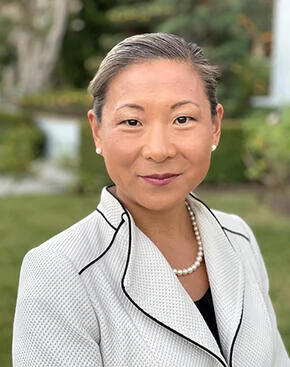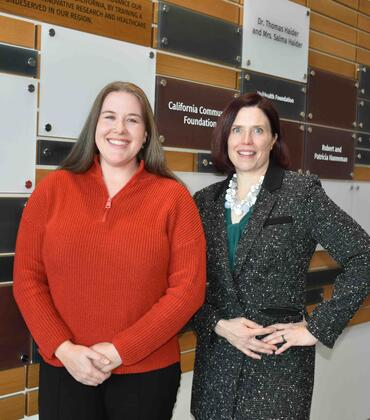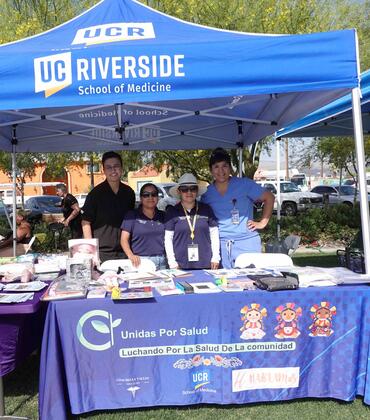
On Tuesday, the UCR School of Medicine hosted the 2024 Celebration of Women in Medicine & Science, honoring women's contributions to science while looking to the future. The annual event, which was held in a remote, online format this year because of smoke from the nearby Line Fire, featured a keynote address from Deena McRae, MD, associate vice president for Academic Health Sciences in the University of California Health division office.

In her keynote address, titled "Turning the Tide: Elevating Women Physicians of Color through Inclusive Innovation," McRae noted that while women made up 51.9% of medical school graduates in 2023, women represented only 37.6% of active physicians in 2022. She also pointed out the lack of women in leadership roles in academic medicine and health systems–and particularly women of color.
“There's evidence that shows that women are promoted more slowly, paid less for identical work as their male colleagues, experience bullying and sexual harassment at greater rates, and receive fewer leadership opportunities,” McRae said. “Women physicians of color are even more likely to experience inequities and work distribution and compensation as well as discrimination and bias,” she added.
But, McRae continued, “We can do something to drive positive change.”
McRae praised events like this one and the fact that the UCR SOM has many women leaders, including Deborah Deas, MD, MPH, the vice chancellor for health sciences and the Mark and Pam Rubin dean of the School of Medicine. She encouraged organizations to regularly evaluate pay and look for inequities, to improve the work experience for people underrepresented in medicine, and to find trends to increase diversity, equity, and inclusion to help address the issue moving forward.
Rosemary Tyrrell, EdD, director of the Office of Faculty Development and an assistant professor in the Department of Social Medicine, Population and Public Health, co-organized the event alongside the SOM's Strategic Initiatives team. For Tyrrell, the most critical theme of this year’s event was the importance of supporting women of color into leadership positions.
Tyrrell said she hoped attendees left with “a better understanding of the data related to women in medicine and science and a ‘call to action’ to become engaged in this work.”
A panel discussion followed the keynote address, featuring Denise Martinez, MD, associate dean of Diversity, Equity and Inclusion, Adwoa Osei, MD, director of the Program in Medical Education (PRIME), and Evita Limon-Rocha, MD, MPH, chair of the SOM Admissions Committee.
The panelists each shared a personal experience illustrating challenges that women physicians continue to face in the workforce, including being taken for a restaurant server instead of a doctor for Limon-Rocha and patients refusing to work with Osei because of her accent.
When McRae asked the panelists to give advice to those in attendance, Limon-Rocha shared the reminder that their voice and perspective is valuable. “Without you, there is no representation,” she said. “Even though you may not feel like your voice matters, or that you feel vastly different than everybody else in the room, don't feel afraid to be brave,” she added. “Bravery is doing things even if you're terrified and nervous; it's taking a chance.”
Finally, McRae encouraged everyone to vote, noting that health professionals have historically voted 12 to 23% less than the general population. “Because of this staggering statistic, I am asking for those on the call to help encourage our health community to vote,” she said.



